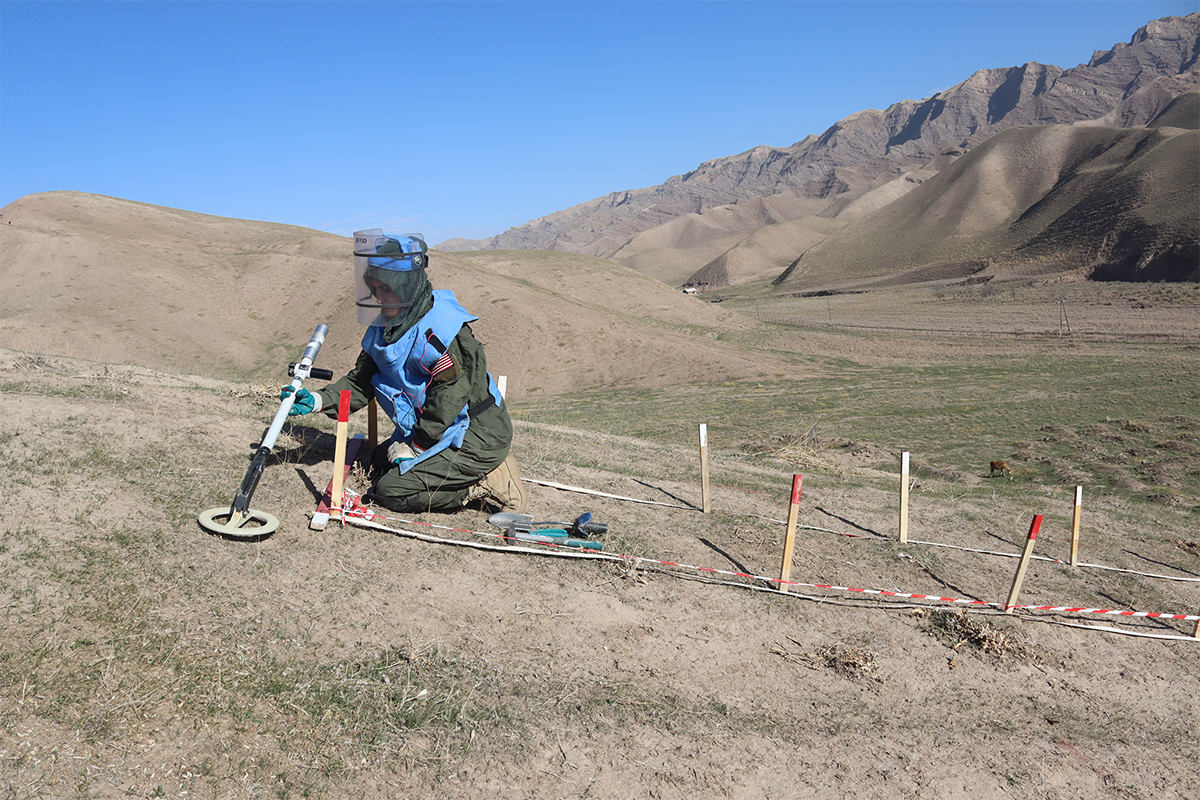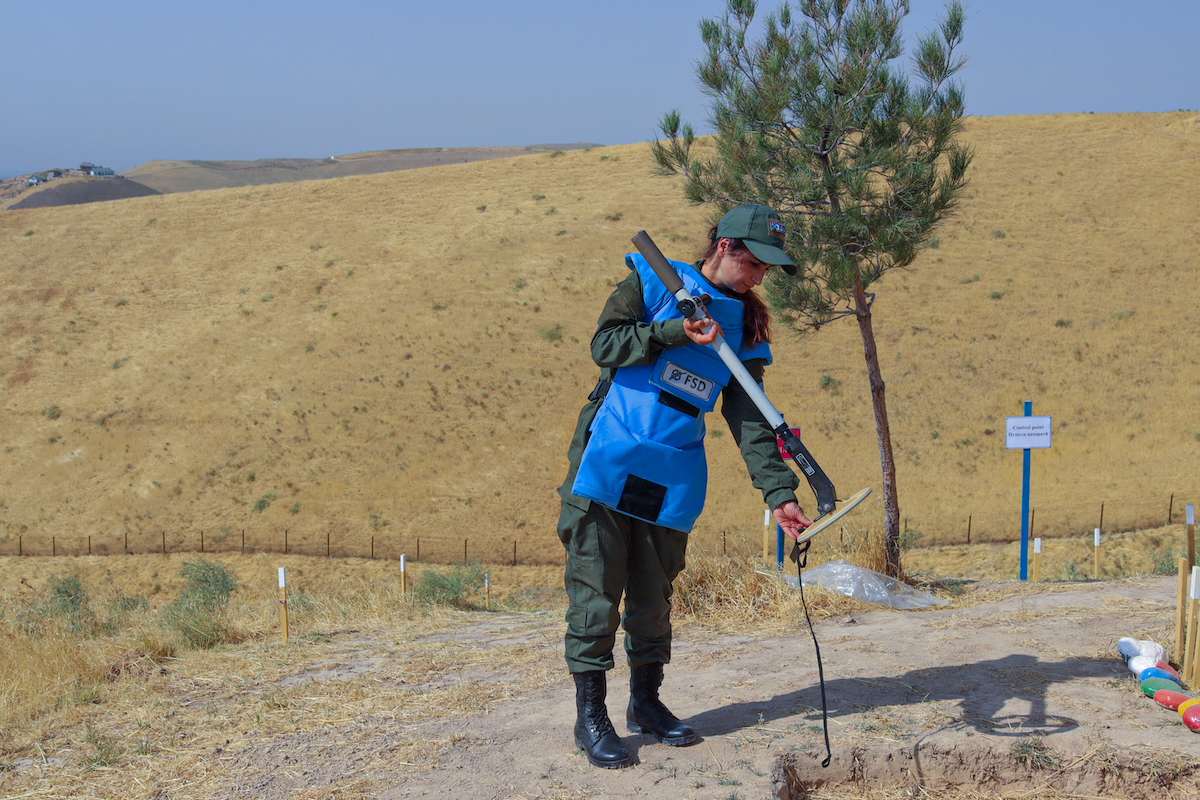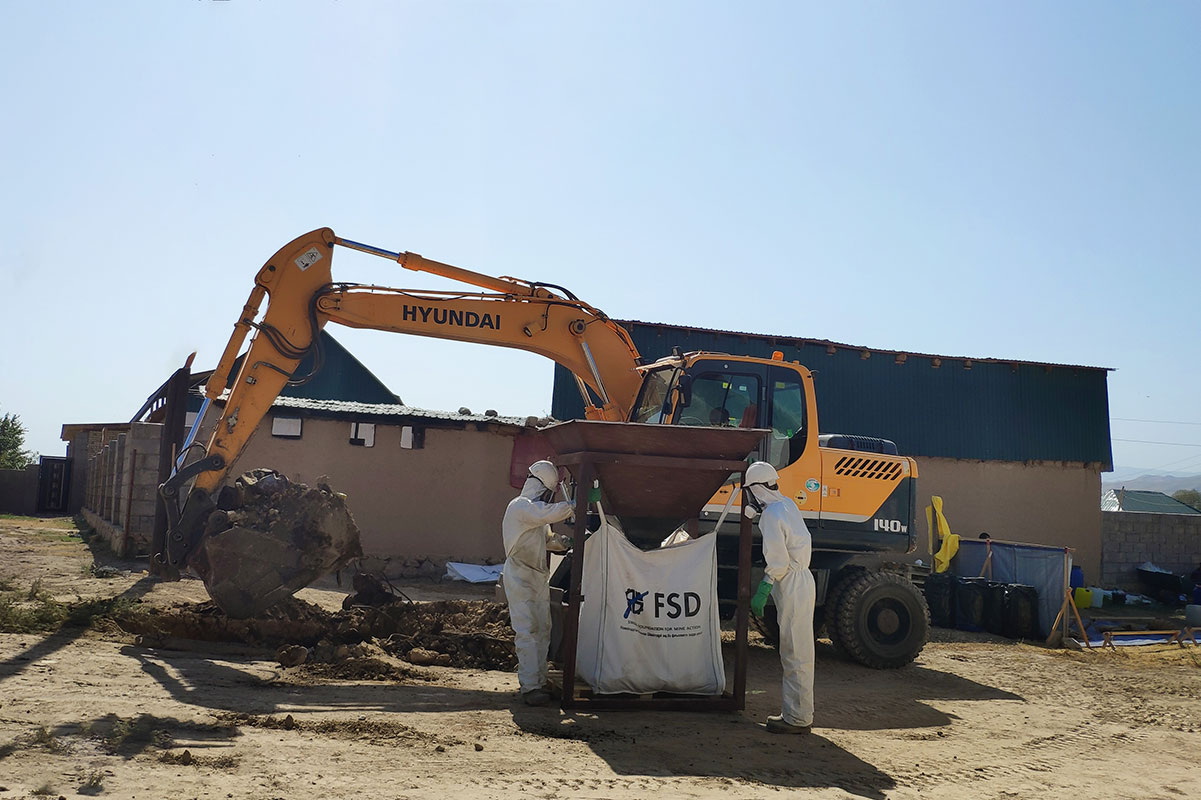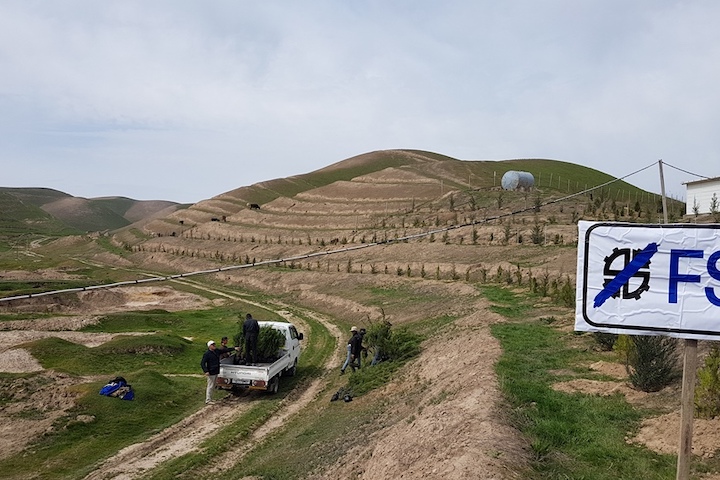Tajikistan
In Tajikistan, FSD works on clearing landmines and other unexploded ordnance, remediating areas contaminated with toxic pollutants and promoting resilience against climate change.
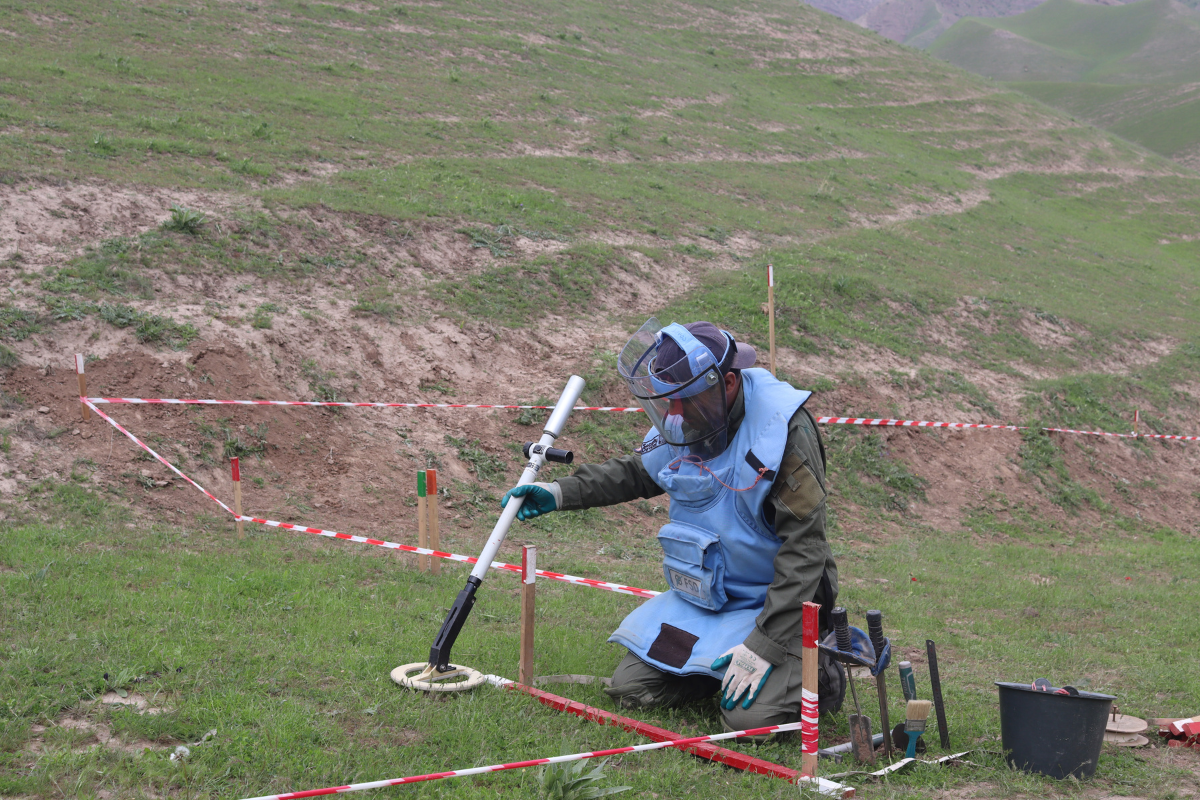
FSD deminer searching for landmines and unexploded ordnance with his detector along the clearance corridor. (Tajikistan, 2024)
Tajikistan
Context
In 1991, following the collapse of the Soviet Union, Tajikistan, alongside several former Soviet States, declared its independence. In the following years, Russian military forces placed landmines along the Tajikistan-Afghanistan border, and the civil war left behind countless items of unexploded ordnance. In the early 2000s, additional landmines were laid by Uzbek forces along the Tajikistan-Uzbekistan border.
Tajikistan is also contaminated by other forms of soil and water pollution, dating back to the Soviet era. In 1950–1960, pesticides, known as persistent organic pollutants (POPs), were largely distributed in the country, almost for free, to increase agricultural production. When the Soviet Union collapsed, many stockpiles of these pesticides were abandoned in the country.
Since then, such obsolete POPs, notably dichlorodiphenyltrichloroethane, commonly known as DDT, have started to infiltrate the environment and the food chain. Long-term exposure to such organic persistent pollutants has been linked to a series of negative impacts on health, from effects on the nervous, immune, reproductive and endocrine systems to various types of birth defects and cancers.
While the Tajik government is aware of the risks of such substances on health, the environment and the economy, it lacks the legal, financial and institutional resources to solve the problem.
When it rains or snows, the soil turns yellow and the smell is unbearable.
Salmanjoon
An inhabitant of Oykamar, a village contaminated by toxic pesticides.
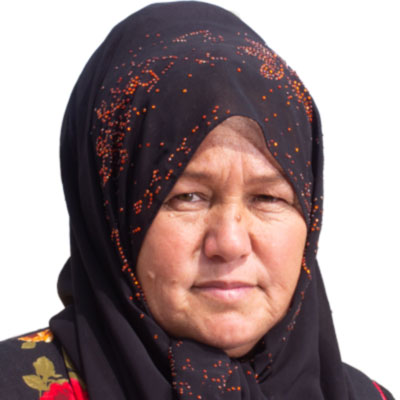
Timeline
FSD in Tajikistan
FSD’s presence in Tajikistan dates back to 2003. For 15 years, our deminers cleared landmines and explosives ordnance, until the project was suspended due to lack of funding.
In 2009, FSD launched a stockpile disposal programme to contribute to national and regional security. Since 2022, this project has included a wider distribution of locations, notably in the Tajikistan-Uzbekistan border region in the west of the country, as better relationships were developed between the two countries. In the summer of 2023, the programme once again returned to mine clearance activities and notably expanded in 2024.
In 2016, FSD initiated a third project in Tajikistan: the remediation of areas contaminated by toxic pesticides left behind from the Soviet era. To address the contamination, FSD excavated soil from contaminated areas and transported it to a safe storage location in Vakhsh, which is far from residential areas and water sources. In parallel, FSD teams carried out risk education campaigns in villages across Tajikistan that are considered at the highest risk from POP contamination.
FSD is one of the United Nations Environment Programme’s implementing partners to test and develop disposal methodologies to eliminate all POPs effectively from contaminated soil. This action aligns with Tajikistan’s pledge to the Stockholm Convention.
In addition, FSD has planted thousands of trees to strengthen soil stability around Vakhsh, rehabilitated irrigation pumping systems supplying three towns, built several community greenhouses to improve food security and is mentoring local residents and community groups in sustainable crop and vegetable production.
FSD’s mine clearance project in Tajikistan has been funded with the PATRIP foundation, UK International Development from the UK government and the U.S. Department of State. Environmental support activities in the country are funded by the GEF and private foundations.
Stories
News from Tajikistan
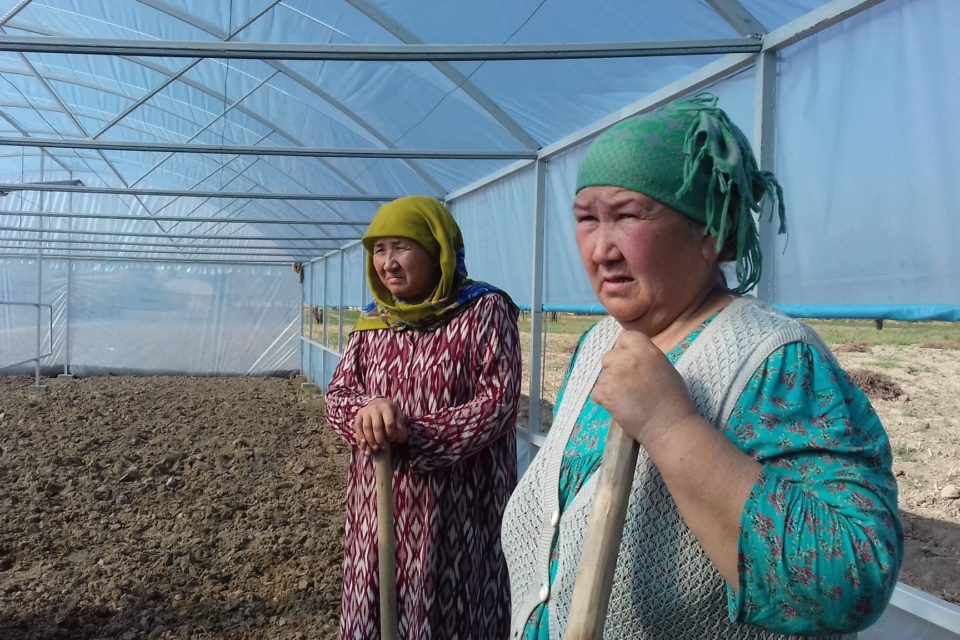
FIGHTING FOOD INSECURITY 🌱
In Tajikistan, FSD improves food security in communities affected by pesticide pollution. This year, FSD invested in infrastructure and plant stocks in the village of Oykamar, with two greenhouses offering safer, pesticide-free cultivation alternatives.
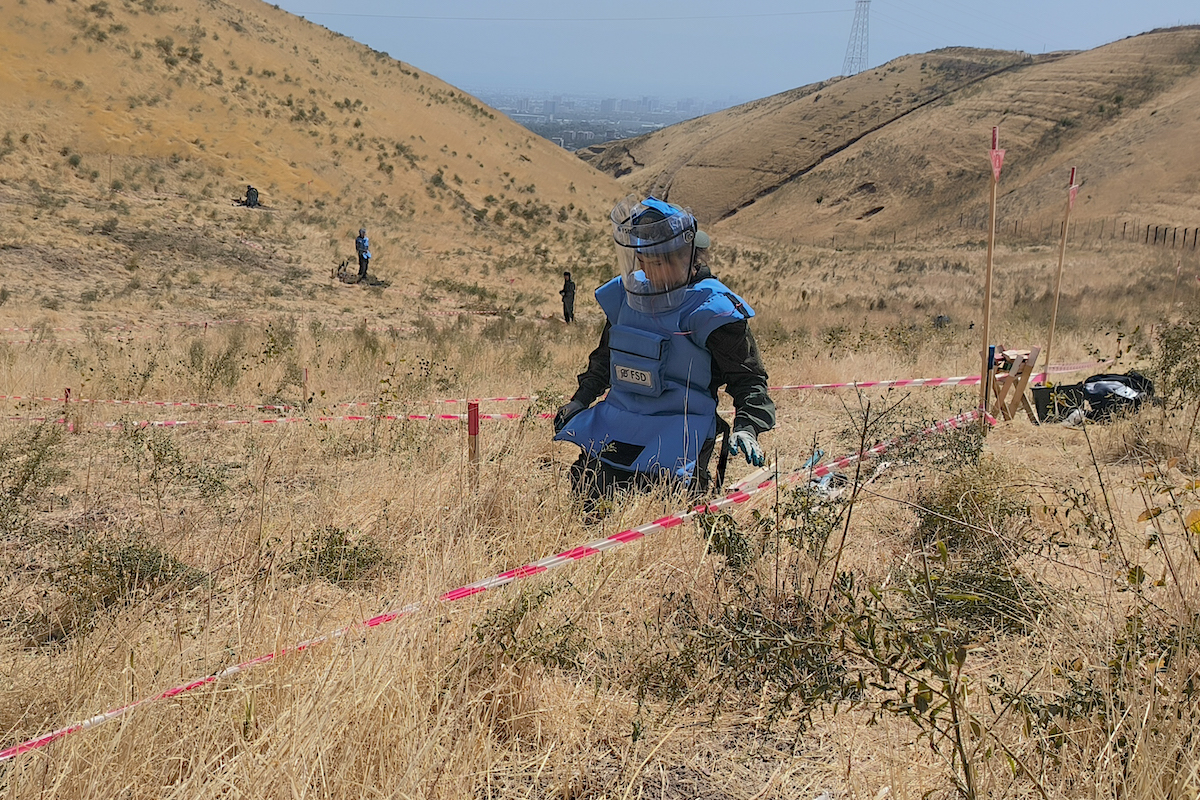
OUR DEMINERS IN TAJIKISTAN
As part of the resumption of mine clearance in August 2023, FSD trained and then deployed a mixed team of deminers. Its members, including four women, are working to clear the 12.5 km² of Tajik territory that is still contaminated.
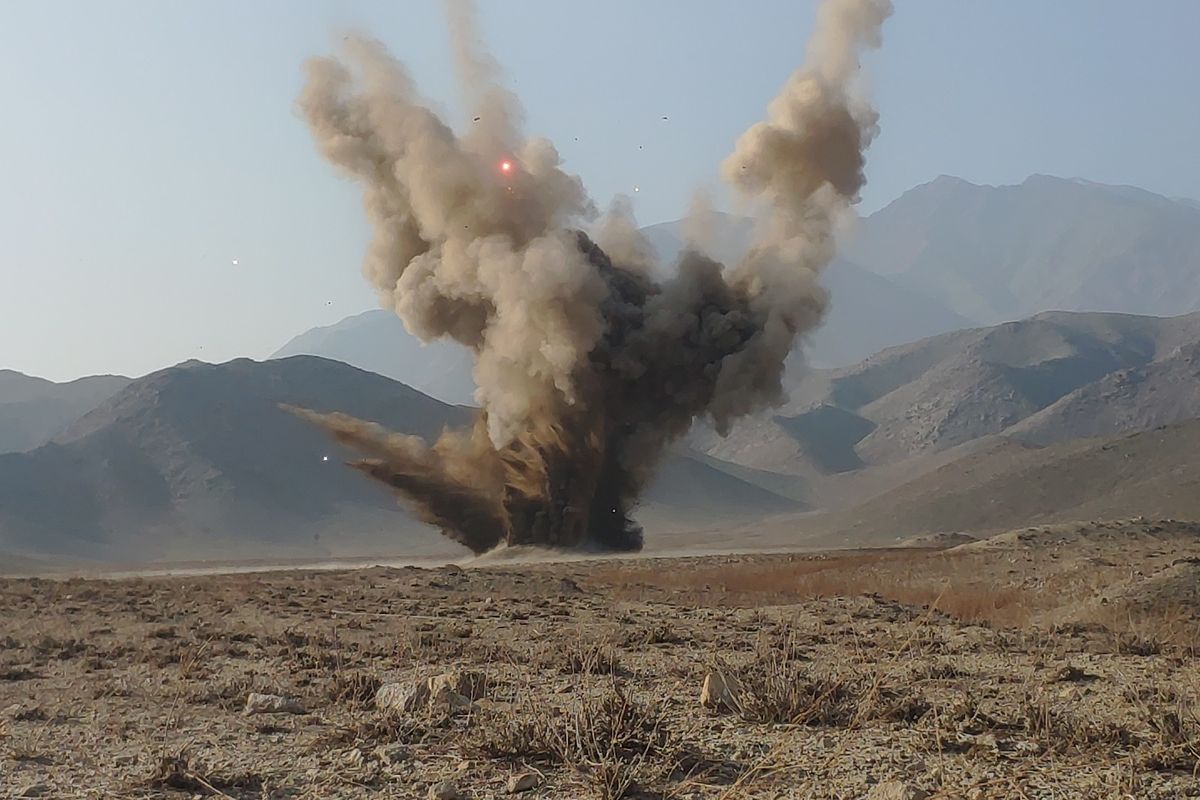
Weapons and ammunition destruction
How do we destroy obsolete weapons and ammunition found in Tajikistan?
➡️ Incineration, for small arms ammunition and pyrotechnics
➡️ Controlled explosion, for larger weapons and ammunition
CENTIMETRE after CENTIMETRE
In 2023, FSD built three community greenhouses and planted over 3,000 trees in Tajikistan to enhance food security and resilience against climate change.
newsletter
Where is FSD currently working in Ukraine? What does a landmine look like? Answers to your questions, once a month.
- News from the field
- Demining videos
- Interviews with experts
- Events
- Job offers
